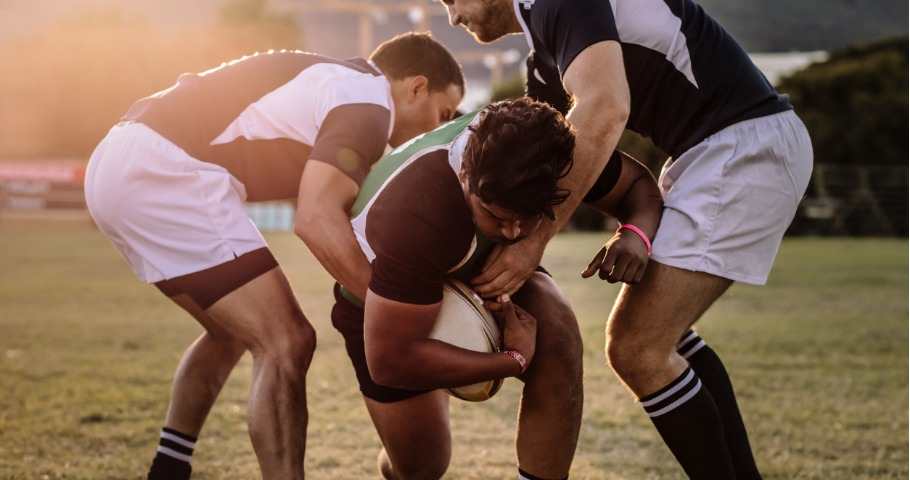
Patient Education Guide for Brain Injury Awareness Month
As we enter Brain Injury Awareness Month, the team at Alliance Orthopedics wants to help educate our patients on the various forms of brain injuries, how you can prevent them and what to do if you or a loved one sustains one.
Traumatic brain injuries (TBIs) can affect people of all ages, genders and lifestyles but are most commonly sustained by athletes and those involved in car accidents. Brain injuries can cause a wide range of symptoms that can affect your physical, cognitive and emotional health. However, by maintaining safe practices and having an action plan, you can reduce your risk of any long-term side effects.
Types of Brain Injuries
Brain injuries can be classified as either closed or open head injuries. Closed head injuries occur without penetrating the skull, while open head injuries are caused by an object penetrating the skull and damaging the brain tissue.
There are two closed head injuries that the team at Alliance Orthopedics most commonly treat.
Concussions
The most common type of brain injury is a concussion. Concussions are caused when the head suddenly and violently moves back-and-forth or side-to-side, which can cause the brain to hit the inside of the skull. This can result in a range of short and long-term symptoms such as headaches, dizziness, nausea, confusion and memory loss. It is important to be aware of these symptoms and seek medical attention if they persist.
What Causes a Concussion?
Any direct blow to the head can cause a concussion. Some of the most common causes include:
- Car accidents or falls
- Tackles during contact sports
- Being hit in the head with a ball or other object
- Preventing Concussions
There are several things you can do to help prevent concussions, including:
- Wearing a helmet when playing sports or riding a bike
- Using seatbelts and car seats properly when driving or riding in a car
- Taking precautions when working with heavy equipment
- Wearing proper footwear to avoid slips and falls
Stroke
A stroke, also known as a cerebrovascular accident (CVA), is the result of an interruption in blood flow to the brain. This can be caused by a blocked or ruptured artery, which starves the brain of oxygen and nutrients. Strokes may cause long-term damage, such as paralysis, speech problems and memory loss.
What Causes a Stroke?
A stroke is most commonly caused by a blockage or rupture in an artery supplying blood to the brain. This can be due to various reasons, but research suggests that lifestyle factors may play a role. These include:
- High blood pressure
- Diabetes
- Smoking
- Heart disease
Preventing Strokes
While the exact cause of a stroke is not always clear, there are several things you can do to help reduce your risk of having one. These include:
Maintaining healthy blood pressure: Control your blood pressure by eating a healthy diet, exercising regularly and reducing stress levels. Speak with your doctor about what medications or specific lifestyle changes may be best for you.
Eating a balanced diet: Consume plenty of fruits, vegetables and whole grains. Consider a consultation with one of the expert nutritionists at Alliance Orthopedics. Our nutritional counseling services can help you design a diet that is best for your health goals.
Staying active: Exercise helps keep your heart healthy and may reduce the risk of stroke. Be sure to speak with your physician before beginning any new exercise routine, and visit Alliance Orthopedics for a range of physical therapy services that can help tackle any limited mobility issues you may have.
Quitting smoking: Reduce or completely eliminate any tobacco products from your life. Not only is smoking bad for your overall health, but it also significantly increases your risk of stroke.
Reducing stress: Stress can increase your blood pressure and contribute to other health problems. Try incorporating relaxation techniques such as yoga or meditation into your daily routine, and look for stress-relieving activities that you enjoy doing on a daily basis.
Neurological Rehabilitation for Brain Injuries
The advanced neurological rehabilitation program at Alliance Orthopedics is designed to help individuals who have suffered any form of traumatic brain injury or condition regain as much independence as possible.
Our multidisciplinary program features a team of experts who will create a personalized treatment plan that meets your specific needs.
Click here to learn more about our neurological rehabilitation program.
Contact Alliance Orthopedics
At Alliance Orthopedics, we offer a variety of services to help patients with brain injuries, but we do much more than that. Our team is fully equipped to provide physical therapy, occupational therapy, orthopedic surgery and pain management services. All of our team members are dedicated to helping our patients get better faster.
If you would like more information about our services, or if you would like to schedule an appointment, please contact us today!